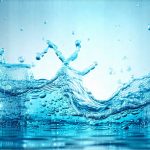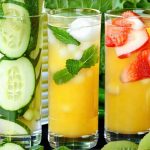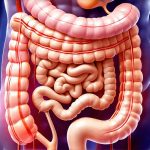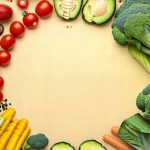Maintaining optimal hydration is far more than simply drinking eight glasses of water daily; it’s fundamentally linked to how well our digestive system functions. Many individuals experience issues like bloating, constipation, or irregular bowel movements, often overlooking the crucial role adequate fluid intake plays in supporting healthy digestion and motility – the process by which food moves through the gastrointestinal tract. This interplay between hydration and digestion is complex, involving everything from softening stool for easier passage to facilitating enzyme activity necessary for breaking down food. Ignoring proper hydration can disrupt this delicate balance, leading to discomfort and potentially chronic digestive problems.
Beyond the basic need for water, understanding how we hydrate – what types of fluids we choose, when we drink them in relation to meals, and even our individual physiological needs – significantly impacts digestive health. Factors like fiber intake, activity level, climate, and existing medical conditions all influence hydration requirements, making a one-size-fits-all approach ineffective. Recognizing these nuances allows for a personalized hydration strategy that actively supports not just overall wellness but also a consistently comfortable and efficient digestive process. Prioritizing mindful hydration is therefore an investment in long-term gut health and wellbeing. You can explore simple breakfast options to start your day off right, supporting both hydration and digestion.
The Science of Hydration & Digestion
The digestive system relies heavily on water throughout the entire process, from the mouth to the large intestine. Saliva, primarily composed of water, initiates digestion by moistening food and beginning carbohydrate breakdown. As food moves into the stomach, water helps create the acidic environment necessary for protein digestion. Further down the line in the small intestine, water is crucial for dissolving nutrients so they can be absorbed into the bloodstream. Finally, in the large intestine, adequate hydration softens stool, preventing constipation and making elimination easier. Dehydration conversely leads to harder stools that are more difficult to pass, potentially leading to discomfort, straining, and even hemorrhoids.
Furthermore, water plays a vital role in maintaining the mucosal lining of the digestive tract. This lining acts as a barrier protecting against harmful substances and facilitating nutrient absorption. Insufficient hydration can compromise this barrier function, increasing vulnerability to inflammation and gut dysbiosis – an imbalance of bacteria in the gut microbiome. A healthy gut microbiome is essential for optimal digestion, immune function, and overall health; therefore, staying adequately hydrated indirectly supports these crucial processes. Thinking about long-term gut diversity can help you build resilience within your digestive system.
Proper hydration also directly impacts gastrointestinal motility — the rhythmic contractions that move food through the digestive tract. When dehydrated, the colon absorbs more water from stool to conserve fluids, slowing down peristalsis (the wave-like muscle contractions) and leading to constipation. Conversely, sufficient fluid intake keeps things moving smoothly and regularly. This is why increasing water intake is often recommended as a first line of defense against constipation.
Optimizing Fluid Intake for Digestive Health
The commonly cited “eight glasses of water per day” serves as a good starting point, but it’s important to tailor your intake based on individual needs. Here are some factors to consider:
- Activity level: Active individuals and those living in hot climates lose more fluids through sweat and need to replenish them accordingly.
- Fiber Intake: A high-fiber diet requires increased water consumption, as fiber absorbs water to form bulk stool and prevent constipation.
- Dietary Habits: Consuming salty or spicy foods can increase fluid loss.
- Medical Conditions: Certain medical conditions (e.g., kidney disease) may necessitate adjustments to fluid intake; it’s best to consult with a healthcare professional in these cases.
Beyond water, other hydrating beverages such as herbal teas and diluted fruit juices can contribute to your daily fluid intake. However, be mindful of sugary drinks, which can negatively impact gut health. It’s also important to sip fluids throughout the day rather than drinking large amounts at once, as this allows for better absorption and prevents bloating. Consider keeping a reusable water bottle readily available as a visual reminder to stay hydrated. A good complement to hydration is understanding healthy snacking habits that support your digestive process between meals.
The Role of Electrolytes in Digestive Function
Electrolytes – sodium, potassium, magnesium, and chloride – are minerals that play essential roles in maintaining fluid balance, nerve function, and muscle contractions, including those within the digestive system. When you’re dehydrated, you also lose electrolytes, which can further disrupt digestion and motility. Low electrolyte levels can lead to muscle cramps, weakness, and impaired nutrient absorption.
Replenishing electrolytes is particularly important during periods of increased fluid loss, such as after exercise or in hot weather. Foods rich in electrolytes include bananas (potassium), leafy green vegetables (magnesium), and pickles/broth (sodium). Electrolyte-rich beverages can also be helpful, but choose options with low sugar content. Maintaining a healthy electrolyte balance ensures that the digestive system functions optimally. Consider incorporating plant-based foods to help fuel beneficial gut bacteria and replenish electrolytes naturally.
Hydration Strategies for Specific Digestive Issues
Different digestive issues may require slightly different hydration strategies. For example:
- Irritable Bowel Syndrome (IBS): Individuals with IBS often find that staying well-hydrated helps to regulate bowel movements and reduce bloating. However, some individuals with IBS may be sensitive to certain types of fluids, so it’s important to identify what works best for you.
- Inflammatory Bowel Disease (IBD): During flare-ups of IBD, maintaining adequate hydration is crucial to replace fluids lost through diarrhea and reduce inflammation. Electrolyte replenishment is also particularly important in these cases.
- Constipation: Increasing fluid intake is a cornerstone treatment for constipation. Combining increased water intake with a high-fiber diet and regular exercise can effectively relieve constipation symptoms. Warm liquids, such as herbal tea, may further stimulate bowel movements.
It’s essential to remember that hydration alone isn’t always enough to address digestive issues. If you’re experiencing chronic or severe digestive problems, it’s important to seek medical attention from a healthcare professional. They can help determine the underlying cause of your symptoms and recommend an appropriate treatment plan. Understanding the effect of poor hydration on saliva production is also key to understanding early stage digestion. And don’t underestimate the benefits of soup and stew based meals for easier digestion and better hydration.


















